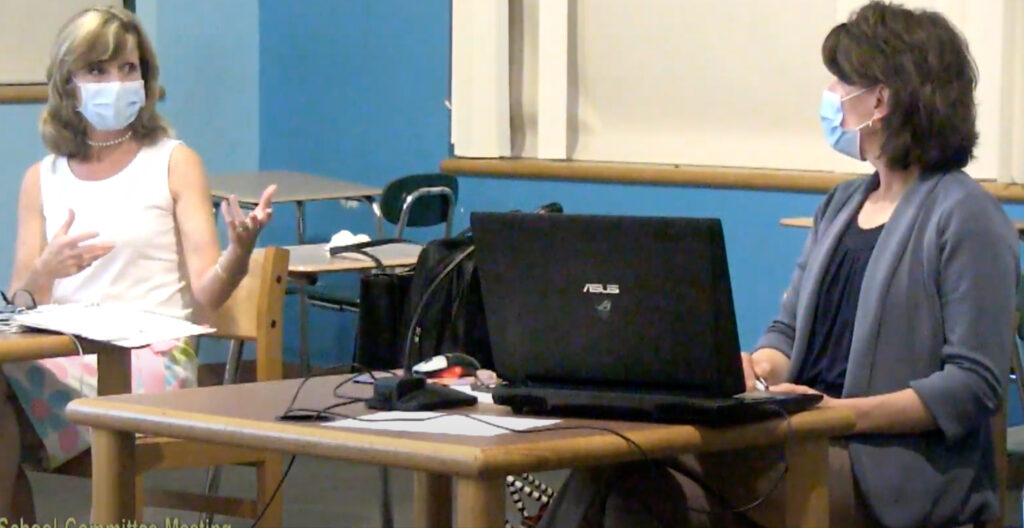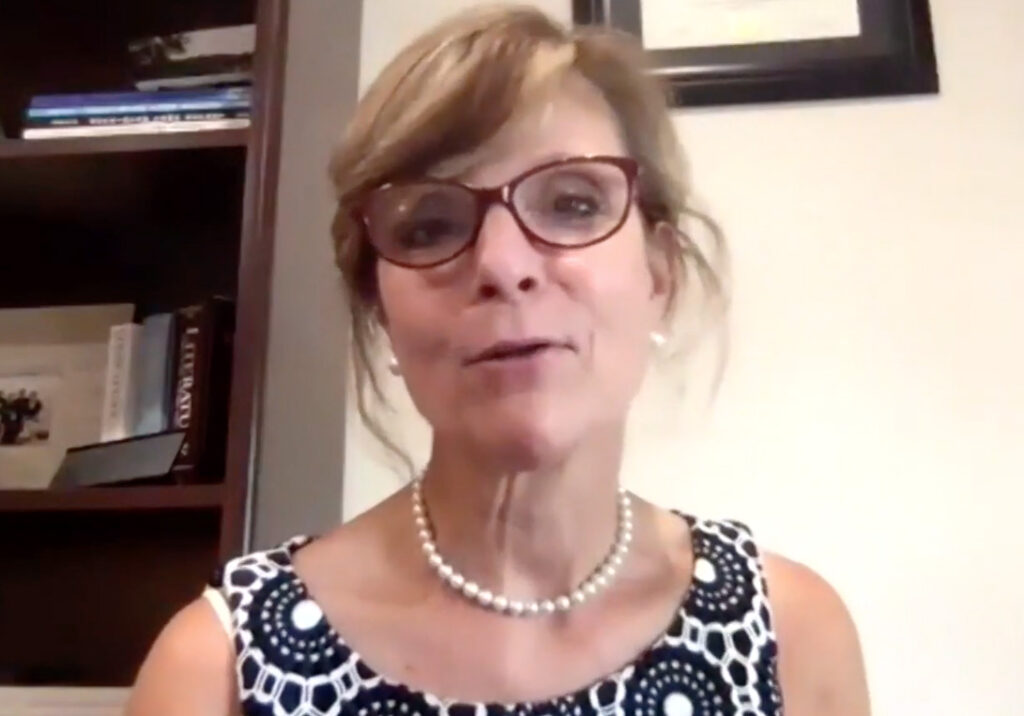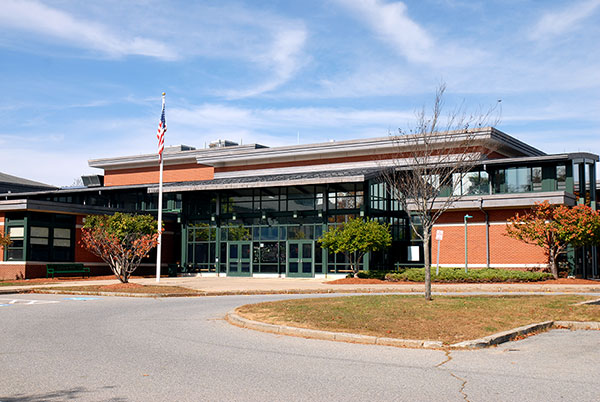Hopkinton Public Schools superintendent Carol Cavanaugh, speaking on HCAM’s Hopkinton Hangout Hour on Tuesday afternoon, indicated plans are continuing for schools in town to reopen on Sept. 16. Assuming the School Committee approves the plan at Thursday’s meeting, the majority of students would be in a hybrid learning model, alternating one day in school with one day of home study (divided into Green and Orange groups).
On Monday a rumor circulated around town that the Hopkinton Teachers Association was pushing for remote learning for the entire school year, but HTA president Becky Abate stated that was not accurate.
Cavanaugh said the district conducted a survey of teachers “about their ability or willingness to come back into the buildings given the state of affairs with the virus,” but the results of that survey are confidential. She also noted that teachers were welcomed into the reentry planning process.
“When we organized the reentry advisory group, the HTA president was a member of that group, and I believe there were five additional teachers there,” Cavanaugh said. “But the five building principals, who were also part of that group, immediately — maybe after our first meeting — started having reentry advisory group meetings in their own buildings. To my understanding, the building principals did not turn anyone away, so if there was someone who wanted to be part of the reentry advisory group meetings, they were all invited to attend — absolutely voluntarily, because teachers don’t have contracted days in the summer.
“All told, we probably have had well over 100 teachers who have had input into this process either at the building level or at the district level.”
Asked what would happen if teachers refused to return to the classrooms, Cavanaugh said there is a legal process. She added that based on discussions with the union she has no reason to think things are headed that way.
“If the Teachers Association decided that they didn’t want to go into that situation, at that point in time I think we would probably have to come back to the table and look at all of these pieces through that litigious kind of an eye — we’d have to think about it from a labor-management point a view,” she said “While I can’t say how that would end, it would be a labor-management issue.
“At this point I’m hoping that that wouldn’t happen. To be perfectly clear, we are engaging in negotiations that seem to be going very well right now. So I would not want the community to think that I was leading them in a place where they believed that I thought what would ensue would be something litigious. I don’t think that at all.”
Cavanaugh said approximately 27 percent of families responded to the district that they would prefer solely in-home learning for their students. That number dips to 12 percent at the high school, meaning the majority of remote-only learners would be in the lower grades.
Addressing a concern about students going to daycare on days off from in-school learning and being exposed to more people, Cavanaugh noted that Hopkinton Parks & Recreation and the YMCA in town have been running summer programs without any major issues, leading to optimism that daycare programs would be able to manage the situation as well.
Massachusetts Commissioner of Elementary and Secondary Education Jeffrey Riley held a conference call with district heads Tuesday morning, and among the things he discussed was how towns can use the state’s COVID-19 data to make informed decisions.
“The group of superintendents across Massachusetts has sort of been hounding the commissioner to say there has to be a metric across the state that we can all apply,” Cavanaugh said. “Now, granted, every community is different. For example, if on the Cape right now there seems to be an uptick of cases because there are loads of vacationers and people are a little bit lax and not wearing masks, that probably doesn’t happen in a community, for example, like Hopkinton or Mendon or some of the communities here in Metrowest or maybe the Blackstone Valley, for example. So we have to kind of take a look at communities, where they are with the virus, then take some kind of state metric and apply it.
“For the first time today we did receive news that the governor would be putting that information up — I believe he probably did that around noontime today — which is comforting, I think, because now we have a consistent rule book by which we can all play. And if you look at the number of cases in Hopkinton that are active today it would indicate certainly that we would be able to open our doors for hybrid.”
During Tuesday’s call, the commissioner advised districts to look at the virus statistics in two-week chunks, which would better help to understand the difference between an uptick and a spike.
Said Cavanaugh: “At least we have a sense now that it won’t just be a superintendent and the director of public health in the community, but rather there are guidelines across the state that have come to us from our governor, which makes us feel a whole lot better that the consistency will exist.”

















0 Comments